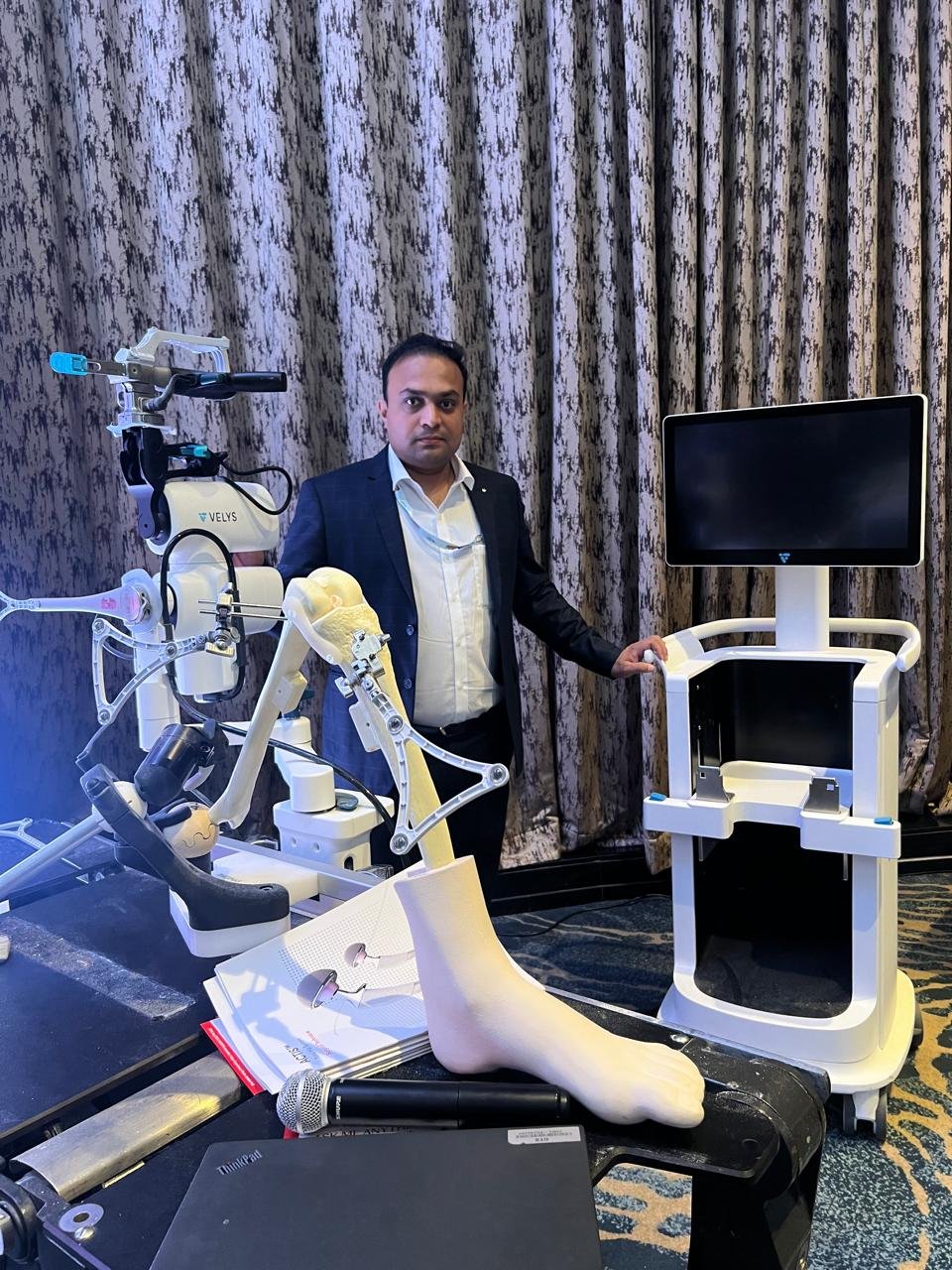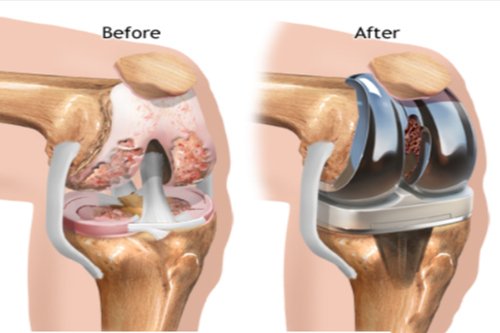Meet Our Doctor

Dr. Prajaktam M. Lende
ORTHOPAEDIC & JOINT REPLACEMENT SURGEON
Fellowships
- Navigation Based Joint Replacement Surgery (Hip & Knee Arthroplasty)
- Arthroscopy & Sport Medicine
- Ilizarove Surgery
- Observer Ship in Pediatric Orthopaedic Surgery (Wadia Hospital, Mumbai)
Knee replacement In Harda
Home / Knee replacement In Harda

Knee replacement In Harda, also known as knee arthroplasty, is a surgical procedure design .thus, to replace a damage or worn-out knee joint with an artificial implant. This procedure is commonly performe to alleviate chronic pain and improve function in individuals.once, with severe knee arthritis or other conditions that affect the knee joint.
Knee replacement surgery is a highly successful procedure that can significantly improve a person’s quality of life by relieving pain and restoring function. It is often considere when conservative treatments, such as medications and physical therapy, no longer provide sufficient relief from knee arthritis or other degenerative conditions. However, the decision to undergo knee replacement is made on an individual basis, taking into account factors like overall health, lifestyle, and the severity of the knee condition.
Preoperative Preparation:
- Medical Evaluation:A comprehensive medical assessment is conducte to determine the patient’s overall health and fitness for surgery.Blood tests, imaging studies, and other diagnostic tests may be perform.
- Patient Education:Patients receive information about the knee replacement procedure, potential risks, and postoperative care. Preoperative exercises may be recommend to strengthen the muscles around the knee.
Surgical Procedure
Anesthesia: Knee replacement is typically performe under general anesthesia, although regional anesthesia options may be considere.
Incision: An incision is made to access the knee joint. The size and location of the incision may vary.
Resurfacing and Implant Placement: Damage cartilage and bone are remove from the knee joint, and the artificial knee components (femoral component, tibial component, and sometimes a patellar component) are securely implante.
Closure: The incision is close, and the surgical site is dress.
Postoperative Care
Hospital Stay: Most patients stay in the hospital for a few days, but this can vary.
Physical therapy begins shortly after surgery to aid in mobility and prevent complications.
Pain Management: Medications are prescribe to manage postoperative pain.
Prevention of Blood Clots: Blood thinners and compression stockings may be use to reduce the risk of blood clots.
Early Ambulation: Patients are encourage to start walking with the help of crutches or a walker soon after surgery.
Rehabilitation and Recovery
Physical Therapy: A structure physical therapy program helps improve joint flexibility, strength, and overall function.
Rehabilitation may continue on an outpatient basis.
Activity Modification: Patients are advise on movement restrictions and gradual return to daily activities.
Food and medications
Your healthcare team might advise you to stop taking certain medications and dietary supplements before your surgery. You will likely be instructed not to eat anything after midnight on the day of your surgery.
Prepare for your recovery
For several weeks after the procedure, you may need to use crutches or a walker, so arrange for them before your surgery. Ensure you have a ride home from the hospital and help with everyday tasks, such as cooking, bathing, and laundry.
To make your home safer and easier to navigate during recovery, consider the following:
- Create a living space on one floor to avoid climbing stairs.
- Install safety bars or a secure handrail in your shower or bath.
- Secure stairway handrails.
- Get a stable chair with a firm seat cushion and back, along with a footstool to elevate your leg.
- Arrange for a toilet seat riser with arms if your toilet is low.
- Get a stable bench or chair for your shower.
- Remove loose rugs and cords.
Best AVN treatment In Harda
Dr. Prajaktam Lende is a trusted Orthopedic doctor In Harda. Top joint Replacement surgery Doctor in Harda. Book an Appointment with Dr Prajaktam M. Lende, one of the prominent orthopaedic surgeon specialised in Joint Replacement surgery and ligament Reconstruction surgery Dr Prajaktam M. Lende at Harda. He is currently associated with the Orthopedic & Joint …
